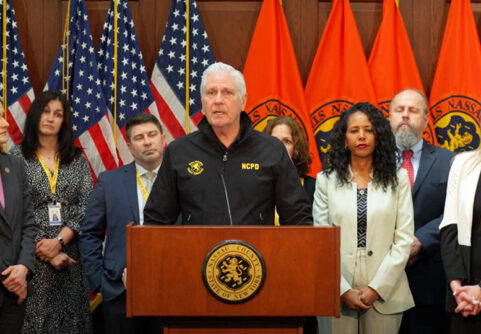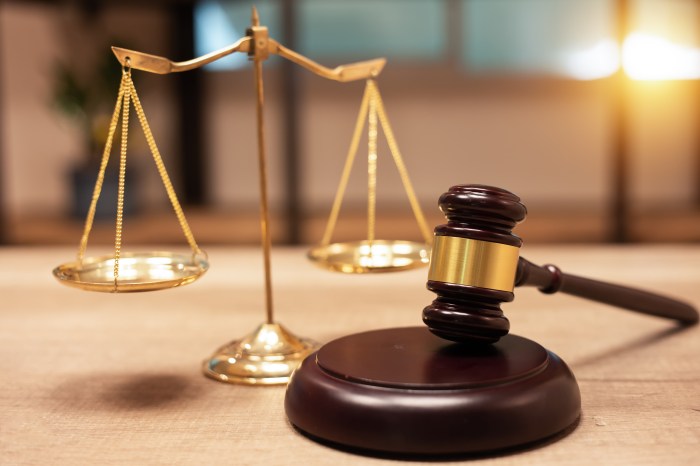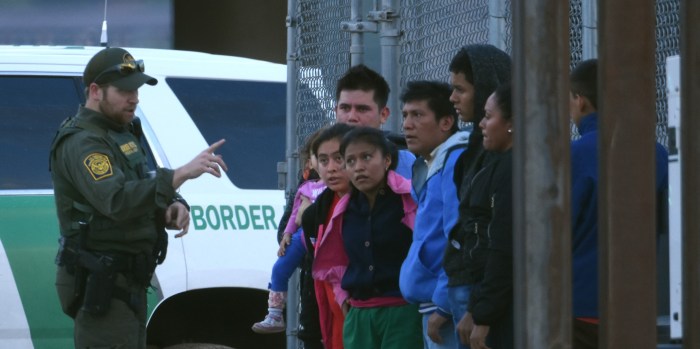Nassau County Executive Bruce Blakeman is back in the news this spring after putting out a call for new Nassau County Provisional Special Deputy Sheriffs, to be activated in case of emergency to protect things like utility warehouses and retail stores.
In March, Blakeman and Nassau County Sheriff Anthony LaRocco published an ad in Newsday looking for applicants to become on-call special deputies in emergency scenarios, offering some basic training and $150 a day when activated, without liability in case of on-the-job injury.
The Nassau County Sheriff’s Department also posted the ad on social media on March 15, and posted it on the county’s website as a PDF ahead of the March 31 application deadline.
The non-union position would be created under New York State County Law 655, which states, “For the protection of human life and property during an emergency, the sheriff may deputize orally or in writing such number of additional special deputies as he deems necessary.”
The ad includes lists of required and preferred qualifications, including a pistol license and a stated preference for former law enforcement or security guards, and the following introduction:
“Nassau County has a population of 1.4 million people and borders New York City’s borough of Queens to the west, and Suffolk County to the east. It is the most densely populated and second-most populous county in the State of New York, outside of New York City. The safety and security of all residents in Nassau County is our paramount concern. In our continual efforts to be prepared and in the abundance of caution, pursuant to New York State County Law § 655, County Executive Blakeman in coordination with Sheriff Anthony LaRocco are establishing a team of Provisional Emergency Special Deputy Sheriffs for the protection of human life and property during an emergency. Provisional Emergency Special Deputy Sheriffs will have no police powers unless an emergency is declared by the County Executive and they are activated.”
Blakeman told news outlets this month that the special deputies wouldn’t be patrolling like regular police, but rather standing guard over infrastructure, property, and ultimately human lives during states of emergency, i.e. following a catastrophic storm.
“I have a background in homeland security, so I know the most important thing you can do is plan for any emergency,” Blakeman stated to NBC Channel 4 New York.
Nassau isn’t the first U.S. county to make headlines for proposing to deputize locals over the past few years. Since 2020, counties or municipalities in Illinois, Louisiana, Virginia, Arizona, and other states have announced this intention, though it seems unlikely that these state-of-emergency squads have actually been activated since.
Critics of the Nassau plan have suggested that authorizing special deputies to guard infrastructure or commerce during an emergency doesn’t seem like it will be particularly helpful, and could potentially present certain dangers to both the public and the special deputies themselves, who receive comparatively minimal training for the work they’d be asked to do.
Others have contended, as in recent media reports, that additional police during emergencies simply aren’t likely to be needed, too.
For example, looting of damaged or shuttered stores after Hurricane Sandy was minimal, according to news reports from that time, and was seemingly limited to scattered instances in the Rockaways, Staten Island, and New Jersey, all of which were followed by arrests.
During the police brutality protests following the killings of George Floyd and Breonna Taylor in 2020, things remained quite peaceful on Long Island, especially compared to other cities and towns. Marches mostly stayed on sidewalks, and only one instance that could be described as looting happened in Nassau County, according to available records: specifically, three people burglarized a single shoe store in Hempstead, after which officers quickly arrived on the scene and arrested the individuals in question.
Regarding Blakeman’s proposal, Alternate Deputy Minority Leader Siela A. Bynoe commented by email, “Nassau residents benefit from the protection of highly capable and trained law enforcement, public safety and emergency response professionals employed within the County framework.”
“In recent years, the Legislature has worked collaboratively with police unions and the administration to furnish officers with resources such as deescalation training, body cameras, and embedded mental health professionals on crisis call responses to minimize use of force incidents and improve outcomes during police and community interactions.”
She continued, “This approach increased respect in our communities for law enforcement, and I would hate for our progress to be eroded by an ill-conceived effort that seems like a recipe for disaster.”
Legislative Minority Leader Delia DeRiggi-Whitton also spoke out against the plan, and was publicly rebuked by Blakeman soon after.
In early April, DeRiggi-Whitton told Patch, “I’ve had some people tell me it’s actually causing them a lot of anxiety … It reminds them not only of the Wild West but of times in Europe with uncertainty. There was something called the Brownshirts, which was basically having civilians all of a sudden become part of law enforcement without the training,” she said, summarizing the words of her constituents.
On April 4, Blakeman held a last-minute press conference at the Holocaust Memorial and Tolerance Center (“despite not receiving specific approval to appear, according to the center,” Patch reported) and suggested that DeRiggi-Whitton’s comment was antisemitic, even calling for her resignation.






























